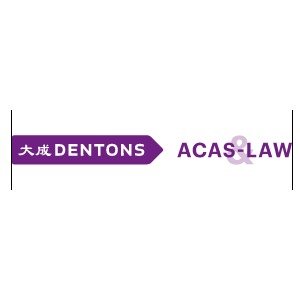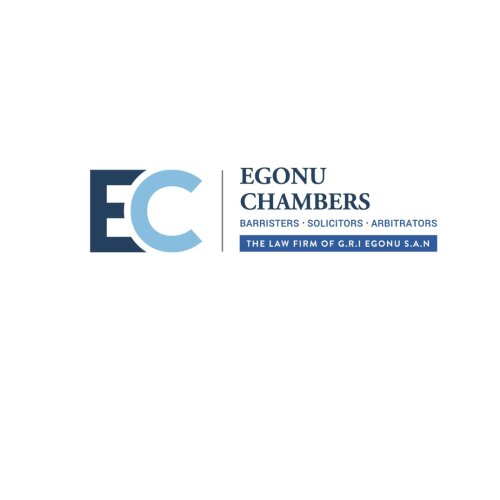Best E-commerce & Internet Law Lawyers in Nigeria
Share your needs with us, get contacted by law firms.
Free. Takes 2 min.
Or refine your search by selecting a city:
List of the best lawyers in Nigeria
Legal guides written by Adeola Oyinlade & Co:
- Procedure and Requirements for Work Permit and Visas in Nigeria
- The Step-By-Step Procedure of How to Apply for Microfinance Bank License Online in Nigeria
- How to Ensure the Smooth Recognition and Enforcement of Foreign Judgments in Nigeria
About E-commerce & Internet Law in Nigeria
E-commerce and Internet Law in Nigeria encompasses the legal framework governing online business activities and digital transactions within the country. With the increasing adoption of online platforms for commercial transactions, the Nigerian government has set laws and regulations to ensure a safe, secure, and fair online marketplace. These laws cover areas like online contracts, consumer protection, data privacy, electronic payments, and intellectual property rights.
Why You May Need a Lawyer
There are several situations where individuals or businesses may require legal assistance concerning e-commerce and Internet law in Nigeria:
- Contractual Disputes: Issues arising from the terms and conditions of online transactions.
- Consumer Rights: Understanding and enforcing rights under consumer protection laws.
- Data Privacy: Ensuring compliance with data protection regulations such as the Nigeria Data Protection Regulation (NDPR).
- Intellectual Property: Protecting trademarks, copyrights, patents, and domain names.
- Cybersecurity: Legal guidance on handling data breaches and cybercrimes.
- Tax Obligations: Regulations regarding the taxation of digital goods and services.
- Licensing and Compliance: Acquiring necessary licenses and adhering to industry standards.
Local Laws Overview
Several key laws and regulations affect e-commerce and Internet practices in Nigeria:
- Nigeria Data Protection Regulation (NDPR): Provides guidelines on data management and privacy requirements for online businesses.
- Cybercrimes Act 2015: Addresses issues related to cybercrime and outlines penalties for violations.
- Consumer Protection Act: Protects consumers within online transactions and ensures fair trade practices.
- Electronic Transactions Bill: A legal framework for the use of electronic communications and records in transactions.
- Intellectual Property Laws: Encompass copyright, trademark, and patent laws relevant to online content and branding.
Frequently Asked Questions
What is e-commerce law?
E-commerce law regulates the conduct, rights, and obligations of parties in online commercial transactions. It covers contract formation, consumer protection, and data privacy, among others.
How does the NDPR affect my online business?
The NDPR mandates compliance with data collection, storage, processing, and sharing requirements. Online businesses must ensure they have measures to protect personal data and inform users about how their data is used.
What are my rights as an online consumer in Nigeria?
As an online consumer in Nigeria, you are protected against unfair practices, have the right to obtain accurate product information, and can seek redress in cases of defective goods or services.
Do I need a license to run an e-commerce business in Nigeria?
Yes, depending on the nature of the goods and services offered, you may need various licenses, including a business registration with the Corporate Affairs Commission (CAC) and, potentially, others based on industry-specific requirements.
What is considered a cybercrime under Nigerian law?
Cybercrime covers unauthorized access to computer systems, data theft, online fraud, identity theft, and other malicious activities conducted via digital platforms.
How can I protect my intellectual property online?
You can protect your intellectual property by registering trademarks, copyrights, and patents, alongside ensuring that your digital content falls under legal protections against unauthorized use.
Do online sellers have to pay taxes in Nigeria?
Yes, online sellers are subject to similar tax obligations as brick-and-mortar businesses, including Value-Added Tax (VAT). Proper registration and compliance with the Federal Inland Revenue Service (FIRS) regulations are necessary.
What steps can I take to enhance my cybersecurity?
Implement robust security measures, such as data encryption, secure payment gateways, regular software updates, employee training, and having an incident response plan.
How can consumers verify the authenticity of an e-commerce website?
Consumers should check for secure payment logos, verify contact information, read reviews, and ensure the website URL begins with "https" indicating a secure connection.
What should I do if I'm a victim of online fraud?
If you're a victim of online fraud, report the incident to local authorities and the Nigerian Communications Commission (NCC). It's also advisable to seek legal counsel to explore recourse and compensation options.
Additional Resources
Here are some resources and organizations that can provide further assistance and information:
- Nigerian Communications Commission (NCC): Supervises and regulates e-commerce activities.
- Nigeria Data Protection Bureau: Offers guidance on data protection and compliance.
- Corporate Affairs Commission (CAC): Provides business registration services.
- Federal Competition and Consumer Protection Commission (FCCPC): Handles consumer complaints and protection issues.
- Professional Associations: Consult organizations such as the Nigerian Bar Association for referrals to qualified e-commerce and Internet law attorneys.
Next Steps
If you need legal assistance concerning e-commerce and Internet law in Nigeria, consider taking the following steps:
- Consult with a Lawyer: Seek guidance from a lawyer specialized in e-commerce and digital law to understand your rights and obligations.
- Gather Documentation: Collect all necessary records related to your legal concerns such as contracts, communication, and receipts.
- Contact Relevant Authorities: Engage with regulatory bodies if your issue involves compliance or reporting offenses.
- Stay Informed: Keep abreast of changes in the law and industry standards to ensure ongoing compliance and protection.
Lawzana helps you find the best lawyers and law firms in Nigeria through a curated and pre-screened list of qualified legal professionals. Our platform offers rankings and detailed profiles of attorneys and law firms, allowing you to compare based on practice areas, including E-commerce & Internet Law, experience, and client feedback.
Each profile includes a description of the firm's areas of practice, client reviews, team members and partners, year of establishment, spoken languages, office locations, contact information, social media presence, and any published articles or resources. Most firms on our platform speak English and are experienced in both local and international legal matters.
Get a quote from top-rated law firms in Nigeria — quickly, securely, and without unnecessary hassle.
Disclaimer:
The information provided on this page is for general informational purposes only and does not constitute legal advice. While we strive to ensure the accuracy and relevance of the content, legal information may change over time, and interpretations of the law can vary. You should always consult with a qualified legal professional for advice specific to your situation.
We disclaim all liability for actions taken or not taken based on the content of this page. If you believe any information is incorrect or outdated, please contact us, and we will review and update it where appropriate.
Browse e-commerce & internet law law firms by city in Nigeria
Refine your search by selecting a city.

















